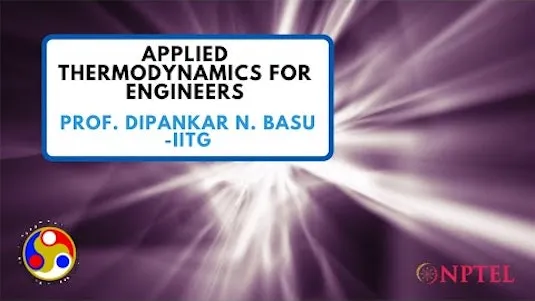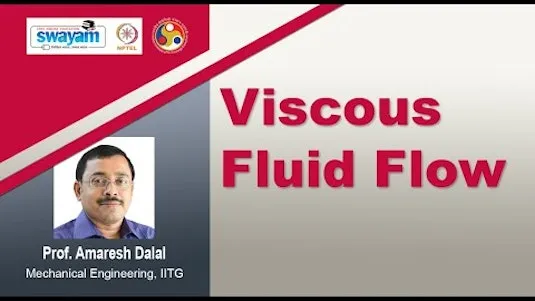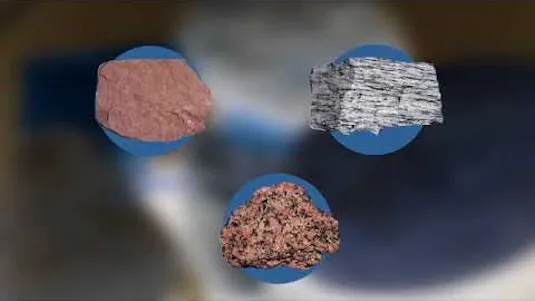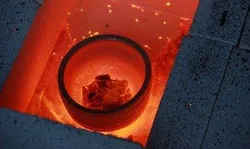
Applied Thermodynamics For Engineers 
This course provides an in-depth exploration of thermodynamics and its applications in power production and absorption cycles. It covers topics such as thermodynamic properties, gas and vapor power cycles, refrigeration cycles, gas mixtures, psychrometry, and chemical equilibrium. It is intended for undergraduate students of Mechanical Engineering, faculty members, and practicing engineers. Prerequisites include fundamentals of thermodynamics. ▼
ADVERTISEMENT
Course Feature
![]() Cost:
Cost:
Free
![]() Provider:
Provider:
Swayam
![]() Certificate:
Certificate:
Paid Certification
![]() Language:
Language:
English
![]() Start Date:
Start Date:
23rd Jul, 2023
Course Overview
❗The content presented here is sourced directly from Swayam platform. For comprehensive course details, including enrollment information, simply click on the 'Go to class' link on our website.
Updated in [March 20th, 2023]
This course, Applied Thermodynamics for Engineers, is designed to provide an in-depth understanding of thermodynamic principles and their application to power producing and absorbing cycles. Participants will learn to estimate thermodynamic properties at any particular state point, analyze gas and vapor power cycles, and understand the principles of cogeneration and combined cycles. Additionally, the course will cover refrigeration cycles, properties of gas mixtures and gas-vapor mixtures, psychrometry and psychrometric processes, and a brief introduction to chemical equilibrium.
This course is intended for undergraduate students of Mechanical Engineering and similar branches, faculty members associated with Mechanical Engineering, and practicing engineers associated with thermal industries. A fundamental understanding of thermodynamics is required for successful completion of the course.
[Applications]
The application of this course can be seen in the design and analysis of power producing and absorbing cycles, selection of refrigerants, and understanding of psychrometric processes. It can also be used to understand the fundamentals of chemical equilibrium. This course can be beneficial to undergraduate students of Mechanical Engineering and similar branches, faculty members associated with Mechanical Engineering, and practicing engineers associated with thermal industries. It is recommended that participants have a basic understanding of thermodynamics prior to taking this course.
[Career Paths]
1. Thermal Engineer: Thermal engineers are responsible for designing, developing, and testing thermal systems and components. They must have a strong understanding of thermodynamics, heat transfer, and fluid mechanics. As the demand for energy efficiency increases, the need for thermal engineers is expected to grow.
2. Refrigeration Engineer: Refrigeration engineers are responsible for designing, developing, and testing refrigeration systems and components. They must have a strong understanding of thermodynamics, heat transfer, and fluid mechanics. As the demand for energy efficiency increases, the need for refrigeration engineers is expected to grow.
3. HVAC Engineer: HVAC engineers are responsible for designing, developing, and testing heating, ventilation, and air conditioning systems and components. They must have a strong understanding of thermodynamics, heat transfer, and fluid mechanics. As the demand for energy efficiency increases, the need for HVAC engineers is expected to grow.
4. Energy Efficiency Engineer: Energy efficiency engineers are responsible for designing, developing, and testing energy efficient systems and components. They must have a strong understanding of thermodynamics, heat transfer, and fluid mechanics. As the demand for energy efficiency increases, the need for energy efficiency engineers is expected to grow.
[Education Paths]
1. Bachelor of Science in Mechanical Engineering: This degree program provides students with a comprehensive understanding of the principles of mechanical engineering, including thermodynamics, fluid mechanics, and heat transfer. Students will learn how to design, analyze, and troubleshoot mechanical systems, as well as develop skills in problem-solving and critical thinking. With the increasing demand for energy efficiency and sustainability, this degree is becoming increasingly important for engineers to stay up-to-date with the latest technologies and trends.
2. Master of Science in Thermal Engineering: This degree program focuses on the application of thermodynamics and heat transfer principles to the design and analysis of thermal systems. Students will learn how to design and analyze thermal systems, as well as develop skills in problem-solving and critical thinking. With the increasing demand for energy efficiency and sustainability, this degree is becoming increasingly important for engineers to stay up-to-date with the latest technologies and trends.
3. Doctor of Philosophy in Thermal Engineering: This degree program focuses on advanced research in the field of thermal engineering. Students will learn how to design and analyze thermal systems, as well as develop skills in problem-solving and critical thinking. With the increasing demand for energy efficiency and sustainability, this degree is becoming increasingly important for engineers to stay up-to-date with the latest technologies and trends.
4. Master of Science in Applied Thermodynamics: This degree program focuses on the application of thermodynamics principles to the design and analysis of thermal systems. Students will learn how to design and analyze thermal systems, as well as develop skills in problem-solving and critical thinking. With the increasing demand for energy efficiency and sustainability, this degree is becoming increasingly important for engineers to stay up-to-date with the latest technologies and trends.
Course Provider

Provider Swayam's Stats at AZClass
Applied Thermodynamics For Engineers provides an in-depth exploration of thermodynamics and its application to power generation and absorption cycles. It covers topics such as thermodynamic properties, gas and steam power cycles, refrigeration cycles, gas mixtures, humidity and chemical equilibrium. It is intended for undergraduates, faculty and trainee engineers in mechanical engineering. This course can be seen as the next step, using the principles of thermodynamics to discuss different power generation and absorption cycles. Properties of pure substances will be discussed as well as thermodynamic property relationships, allowing participants to estimate all relevant thermodynamic properties at any given point of state.
Discussion and Reviews
0.0 (Based on 0 reviews)
Explore Similar Online Courses

Life 101: Mental and Physical Self-Care

Java for Beginners - Step by Step

Python for Informatics: Exploring Information

Social Network Analysis

Introduction to Systematic Review and Meta-Analysis

The Analytics Edge

DCO042 - Python For Informatics

Causal Diagrams: Draw Your Assumptions Before Your Conclusions

Whole genome sequencing of bacterial genomes - tools and applications

Viscous Fluid Flow

Metamorphic Petrology & Thermodynamics


Start your review of Applied Thermodynamics For Engineers